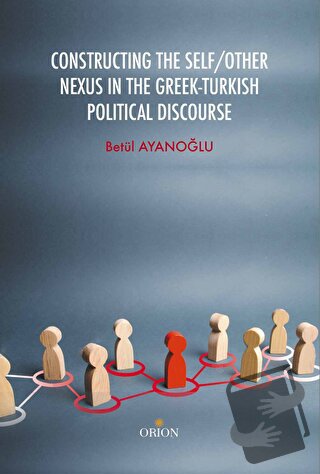Constructing the Self / Other Nexus in the Greek - Turkish Politıcal Discourse

Identity conceptions are the significant factors that affect states’ approaches to policies and international issues. This book explores the identity perceptions and notions of otherness at the political level in Greece and Turkey by studying the speeches made by the parliamentarians in the legislative organs of the two countries. It reflects a cross-section of Turkish-Greek relations laden with considerable identity shifts where the parties portray their potential for conflict and reconciliation. The purpose of this research is to examine how the reality of the other is constructed and reveal the existing link(s) between the self and the other.
The selected period elucidates a handful of striking political developments wherein both countries underwent a series of unsettling domestic and foreign policy experiences and frustrations concerning their bilateral relations and their relations with the outside world. The book focuses on the most critical events that took place during this period, including the crisis of Kardak/Imia, Abdullah Öcalan’s capture, and the 1999 Helsinki Summit of the EU, when Greece lifted its veto over Turkey’s candidacy to the Union. The significance of these events for Turkish-Greek relations from an identity point of view is analysed by extrapolating parliamentary debates in both countries. Overall, the book skillfully takes the reader on a journey through the self/other nexus in Turkish-Greek relations by way of analysing the effects of these critical events.
| Taksit Sayısı | Taksit tutarı | Genel Toplam |
|---|---|---|
| Tek Çekim | 222,30 | 222,30 |
| 3 | 80,98 | 242,93 |
| 6 | 42,75 | 256,51 |
| 9 | 30,01 | 270,12 |
| 12 | 23,64 | 283,68 |
| Taksit Sayısı | Taksit tutarı | Genel Toplam |
|---|---|---|
| Tek Çekim | 222,30 | 222,30 |
| 3 | 80,98 | 242,93 |
| 6 | 42,75 | 256,51 |
| 9 | 30,01 | 270,12 |
| 12 | 23,64 | 283,68 |
| Taksit Sayısı | Taksit tutarı | Genel Toplam |
|---|---|---|
| Tek Çekim | 222,30 | 222,30 |
| 3 | 80,98 | 242,93 |
| 6 | 42,75 | 256,51 |
| 9 | 30,01 | 270,12 |
| 12 | 23,64 | 283,68 |
| Taksit Sayısı | Taksit tutarı | Genel Toplam |
|---|---|---|
| Tek Çekim | 222,30 | 222,30 |
| 3 | 80,98 | 242,93 |
| 6 | 42,75 | 256,51 |
| 9 | 30,01 | 270,12 |
| 12 | 23,64 | 283,68 |
| Taksit Sayısı | Taksit tutarı | Genel Toplam |
|---|---|---|
| Tek Çekim | 222,30 | 222,30 |
| 3 | 80,98 | 242,93 |
| 6 | 42,75 | 256,51 |
| 9 | 30,01 | 270,12 |
| 12 | 23,64 | 283,68 |
| Taksit Sayısı | Taksit tutarı | Genel Toplam |
|---|---|---|
| Tek Çekim | 222,30 | 222,30 |
| 3 | 80,98 | 242,93 |
| 6 | 42,75 | 256,51 |
| 9 | 30,01 | 270,12 |
| 12 | 23,64 | 283,68 |
| Taksit Sayısı | Taksit tutarı | Genel Toplam |
|---|---|---|
| Tek Çekim | 222,30 | 222,30 |
| 3 | - | - |
| 6 | - | - |
| 9 | - | - |
| 12 | - | - |
Identity conceptions are the significant factors that affect states’ approaches to policies and international issues. This book explores the identity perceptions and notions of otherness at the political level in Greece and Turkey by studying the speeches made by the parliamentarians in the legislative organs of the two countries. It reflects a cross-section of Turkish-Greek relations laden with considerable identity shifts where the parties portray their potential for conflict and reconciliation. The purpose of this research is to examine how the reality of the other is constructed and reveal the existing link(s) between the self and the other.
The selected period elucidates a handful of striking political developments wherein both countries underwent a series of unsettling domestic and foreign policy experiences and frustrations concerning their bilateral relations and their relations with the outside world. The book focuses on the most critical events that took place during this period, including the crisis of Kardak/Imia, Abdullah Öcalan’s capture, and the 1999 Helsinki Summit of the EU, when Greece lifted its veto over Turkey’s candidacy to the Union. The significance of these events for Turkish-Greek relations from an identity point of view is analysed by extrapolating parliamentary debates in both countries. Overall, the book skillfully takes the reader on a journey through the self/other nexus in Turkish-Greek relations by way of analysing the effects of these critical events.










